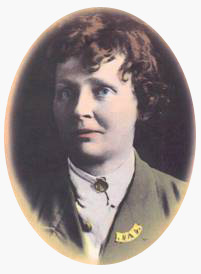
Qu’est-ce que vous associez avec la guerre ?
J’ai demandé cette question à plusieurs personnes sur Facebook et j’ai reçu ces réponses:
Le mort, les soldats, les hommes se battant, les jeunes, le patriotisme, les hommes.
We think of our men, our boys, barely 18, saying farewell to their families as they sail off to fight for their country. We think of loyalty, camaraderie, brotherhood. We think of blood, violence, the fragility of human life. We think of the creators of war, the men behind the powerhouse countries that drive the action, Clemenceau, Wilson, Lloyd George.
War is a decidedly masculine affair, and history remembers it that way. In my inquiry, I will attempt to offer a perspective that is rarely seen and yet just as important as our first associations. War does not only affect the men who fight, but women. Women took over their husband’s jobs as a matter of survival, only to be relegated back to the household upon the men’s return. Women took care of their family while in constant fear of what would happen to their loved one. Women travelled alongside the soldiers as nurses, ensuring their health and physical strength in order for them to fight. Women built aircrafts by day and knitted socks by night. They were indispensable. Although, for the most part, war was fought between men, it couldn’t be fought without the aid of women. This is why I am choosing to focus on the intelligent, strong and every-bit-as-important-as-the-man women behind the scenes in World War I, who remain overlooked in our history books today.
When looking for possible topics to research, I came across a New Zealand woman named Ettie Rout and I was immediately drawn to her story. Ettie was a woman ahead of her time – a freethinker and socialist who wasn’t afraid to resist the conventions of being a woman in the early 20th century. She held seemingly outrageous views on sexuality and wore unorthodox dress: short skirts, men’s boots, and sometimes trousers. In July 1915, Rout set up the New Zealand Volunteer Sisterhood and invited women between the ages of 30 and 50 to go to Egypt to care for New Zealand soldiers, a program which was met with government opposition. In Egypt, Rout became aware of the soldier’s venereal disease rate which they had contracted from the local brothels. She tried to persuade the New Zealand Medical Corps officers to issue prophylactic kits and to establish the inspection of brothels, to no avail.
The soldiers looked to Ettie as a motherly figure, and she took care of them as if they were her own sons. In June 1917, Rout went to London to research among the foremost doctors to produce her own prophylactic kit, which she sold at the New Zealand Medical Soldiers Club. These kits were later adopted by the NZEF for free and were distributed to all soldiers going on leave. Rout received no recognition for her role, and was banned from New Zealand newspapers with so much as a mention of her name resulting in a £100 fine. In April 1918 Rout went to Paris where she set up a one-woman social and sexual welfare service for soldiers. She handed out cards to New Zealand soldiers recommending the brothel of Madame Yvonne, which Rout regularly inspected to ensure its hygiene. Following the war, she continued campaigning for safe sex and sex education to much adversity and opposition. She was seen as a “scandalous” and “wicked” woman and her hugely beneficial and progressive work was ignored in her own country. As part of my project I would like to research further into the life of Ettie Rout and how our attitudes have and have not changed towards women like Ettie in the space of 100 years. I would also like to research similarly heroic New Zealand and French women who played important roles during World War I. My goal is to give recognition to those women behind-the-scenes in World War I as well as to gain insight into the sexist views that were once held, and to an extent, still held in our society. I hope to incorporate the use of film and photography into my project.
Latest from Chloe Leung
Media
2 comments
-
Comment Link
 Saturday, 19 April 2014 20:34
posted by Ruth Bourchier
Saturday, 19 April 2014 20:34
posted by Ruth Bourchier
C'est scandaleux que la société de l'époque fût scandalisée par le travail d'Ettie Rout. Ce qu'elle a fait pour la santé sexuelle des soldats mérite bien de la reconnaissance. Elle a dû être une femme très courageuse pour faire face à l'opposition. C'est un sujet très intéressant que tu as choisi. J'ai hâte de lire la suite de tes recherches. Bonne continuation!
-
Comment Link
 Monday, 07 April 2014 21:11
posted by Sophie Allan
Monday, 07 April 2014 21:11
posted by Sophie Allan
Wow, I really like the ideas behind your project Chloe! All the best with your inquiry :-)
